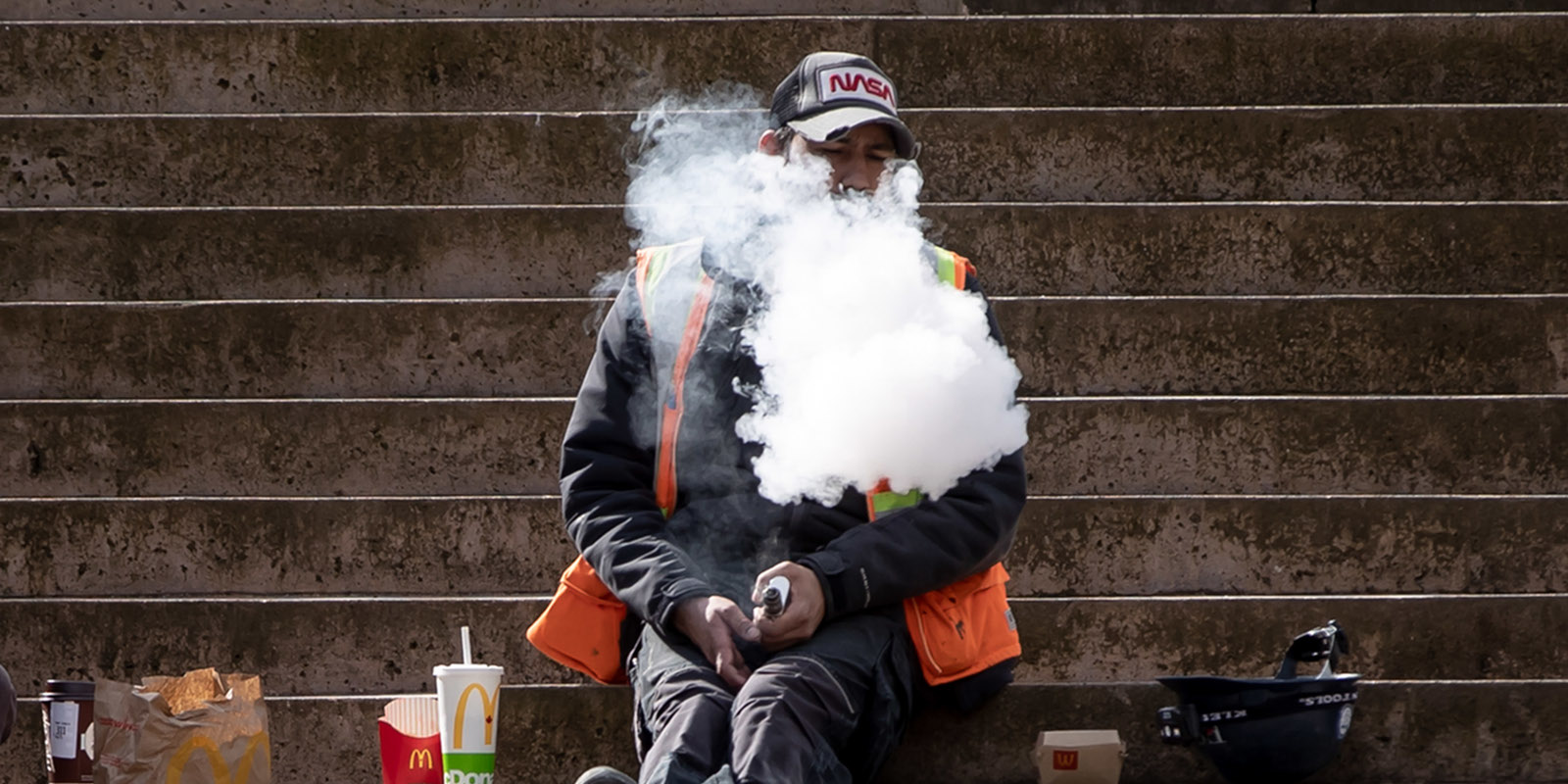According to experts in Canada and the United Kingdom, you should only drink two alcoholic beverages per week to prevent cancer, and bringing cake to the office is as bad as second-hand smoke. Second-hand smoke, though, may be on the rise if new taxes on vape and electronic cigarette products continue to proliferate.
Quebec is now set to implement a new provincial excise tax on vape and e-cigarette products next fall that is expected to charge $2 for every 2 ml of vaping liquid, or “juice”, for each liquid product’s first 10 ml. The existing federal excise duty charges $1 for every 2 ml of juice for any amount up to 10 ml, and then $1 for every 10 ml beyond that.
According to some advocates, the new taxes are a sign that following the science of public health sometimes gets trumped by the hard realities of provincial balance sheets.
It is no coincidence that the drop in tobacco tax revenue preceded the province implementing an excise tax on vapour and e-cigarette products, says Valerie Gallant, a spokesperson for Coalition des droits des vapoteurs du Québec.
“They’re clearly losing money because of the people that switched from tobacco to vaping, so they’re trying to get that money back,” says Gallant. “It’s totally counterproductive to do that because the more you pay for it, the less attractive it gets for customers.”
MTL Blog reported that vape users in Quebec could pay up to 80 percent of the original product’s cost in taxes. A 2020 study from the University of Waterloo indicated that the province is one of the biggest consumers of tobacco in Canada, with over 12 percent of the population being smokers.
According to data from Physicians for a Smoke-Free Canada, the amount of provincial and federal tobacco tax revenue has remained largely static since 1995, hovering between 3 and 4 billion dollars when adjusted for inflation. Nonetheless, the same study also estimated every province saw a drop in tobacco tax revenue in 2022.
Smoking-related illnesses claim the lives of almost 50,000 Canadians annually.
The Government of Canada, the United States Centers for Disease Control and Prevention, and private entities like Johns Hopkins Medicine are united in agreement that vaping and e-cigarettes are safer alternatives to smoking, but also note neither is a completely safe alternative and that they sustain a person’s addiction to nicotine.
Ian Irvine is a professor of economics at Concordia University who has conducted research into tobacco and alcohol for over two decades. He has worked or consulted for both the federal government of Canada and private entities like the Canadian Vaping Association.
Regarding the modest data available in Canada regarding the connection, Irvine says there were reported crossover effects between higher prices and taxes on tobacco alternatives and the increased use of combustible cigarettes.
Irvine says research in the U.S. in this area is more thorough and also indicates there is indeed a correlation, even if the cheaper cost of tobacco down south likely results in a more noticeable crossover effect.
“That’s a negative for public health, obviously,” says Irvine.
Research published by the National Library of Medicine, a U.S. government entity, found that increased taxes on vapour and e-cigarette products caused a rise in tobacco sales, as well as vice versa.
“The reason why people who believe in harm reduction, like myself, argue against high taxes is that what we need to do for public health is to convince people to use less toxic products and cigarettes,” says Irvine. “If you can use a product that’s at most 5 percent as bad as cigarettes, then you’re onto a winner.”

Maria Papaioannoy is the owner of the Ecig Flavourium chain, which operates in Ontario, and an advocate for vape users. She says the arms of government that deal with vaping from a health perspective and those in charge of taxing it are not on the same page.
Papaioannoy praises Health Canada’s language when it publicly states vaping is a way to stop smoking cigarettes.
“They put it in a type of language that is not marginalizing addiction, especially tobacco addiction and addiction to nicotine,” says Papaioannoy. “Then at the same time, you have the other arm of the government, finance, using a common sin tax to further marginalize, and further create a negative stigma of people.”
The Government of Canada could not be reached for comment in time for publication.
Harm reduction is in vogue within Canada’s federal and provincial governments, with calls to destigmatize the use of hard drugs like opioids, and provide a non-toxic “safe supply” of these narcotics to cut down on often fatal drug poisonings.
Nicotine addiction, particularly among underage people, is usually one of the key reasons cited by provincial governments for taxes and flavour bans on vapour and e-cigarette products. This was the case in Nova Scotia, British Columbia, and now Quebec.
When asked for comment, Quebec’s Ministry of Finance provided an extract from a December financial update, stating the incoming taxation was meant to help deter youth from vaping, and generate $40 million for the province.
In 2020, Nova Scotia’s provincial government implemented a flavour ban on vapour products, which was followed by shop owners reporting a rise in cigarette sales. The shop owners also cited the effects of altered cross-border shopping habits during the pandemic as another reason for changes to the sales.
Like vaping products, Nicorette chewing gums are sold in a variety of flavours including spearmint and fruit. Papaioannoy questions why vapour and e-cigarettes are the only non-tobacco nicotine products being hit with new taxes even though nicotine addiction is cited as the issue.
“Vaping helps people who smoke stop smoking…if it was all about nicotine, why are we not taxing gums and lozenges and nicotine sprays?” asks Papaioannoy.
Recommended for You

Jerry Amernic: Commemorating crime victims is fine—how about actually stopping criminals in the first place?

Canada outperforms the U.S. on many well-being measures—yet on the important economic indicators, we are falling far behind

Ariella Kimmel: With Eurovision underway, we must push back on antisemitism’s growing appeal—in the arts and everywhere else

‘Enormously expensive and very narrow’: Kevin Quigley on Canada’s precautionary response to COVID-19




